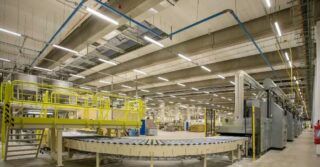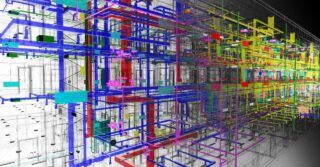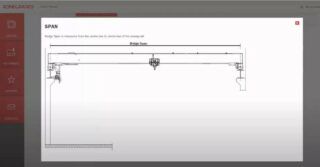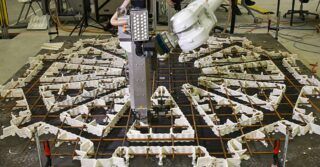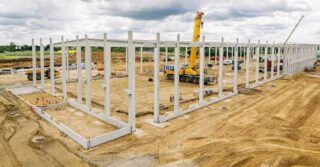Is it possible to extend an industrial building by 700 square metres in five days without interrupting the production process in the existing building?
For most of you, this may seem practically impossible if we consider the realities of traditional investment processes, typically involving steel or reinforced concrete halls. The formalities alone can take a long time, and ensuring continuity of production in the expanded hall becomes a major challenge.
In fact, such an undertaking is only possible with modular halls, among which special attention should be paid to multi-year tent halls, built from lightweight but very durable aluminium profiles.
In the public mind, tent halls are primarily associated with temporary facilities, to put it bluntly, seasonal tents that can be seen at events and meetings. However, the same aluminium profile structure can also be an insulated warehouse or industrial hall with a surface area of several thousand square metres, designed for decades of use (even up to 50 years) and adapted to local wind and snow loads.
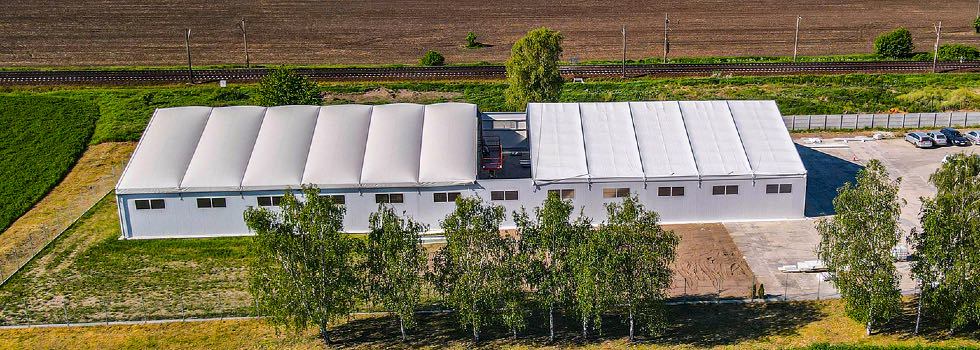
One of the leading manufacturers of such halls in Europe is Pol-Plan from Stęszew.
Pol-Plan’s customers often gain experience with tent halls, starting with small halls covered with PVC or trapezoidal sheeting.
As the company develops, there is a need to increase storage or industrial space. It is precisely at this point that an investor can reduce the investment risk and significantly shorten the payback period by investing in an insulated tent hall. This was the route taken by Mark-John, a CNC machining and spare parts manufacturing company.
A small tent hall with trapezoidal sheet metal walls, erected on paving stones, marked the beginning of positive experience with this type of construction. The client believed in the potential of the structure and decided to build a hall with sandwich panel walls and an inflatable roof. The 24x30x4.5m hall, which houses CNC machines, was erected in just a few days. Paving stones were used as the base. Concrete foundations were used under the main columns. The hall is equipped with forced ventilation and a Flowair inflatable heating system. After one year of operation, the idea was to extend the hall by six 5-metre segments to a size of 24x60x4.5m. The free space in front of the hall made this expansion possible.
Thanks to the segmented construction of the tent hall structures, it is relatively easy to extend the halls with additional 5-metre modules. In addition, the absence of heavy machinery means that the extension can be carried out with virtually no disruption to work in the existing hall, including the passage of forklift trucks through the yard and into the hall.
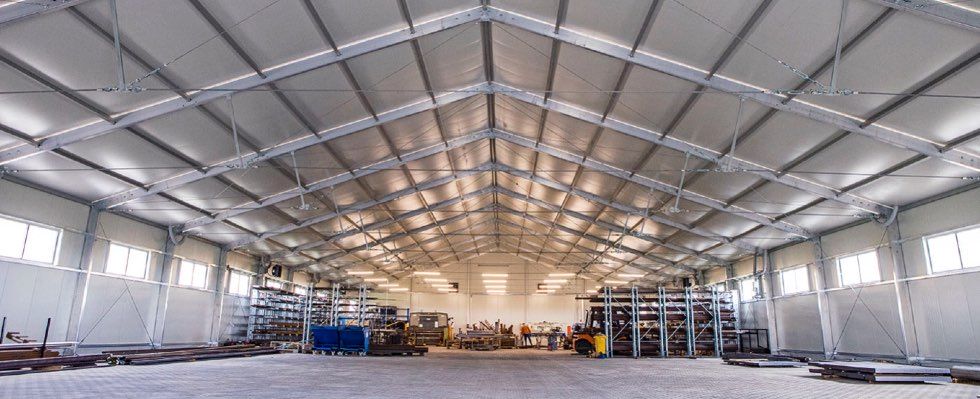
The process of extending the tent hall began with anchoring the steel feet to the concrete using bolts glued with a special adhesive – “chemical anchors”. The main trusses of the hall, made of aluminium profiles connected by steel connectors, were hinged to the feet of the hall and could be easily lifted using a Manitou lift. Access to the inside of the hall is only restricted when the main trusses are installed on the ground. The next stage of the extension took place the following day – the installation of sandwich panels with a 60 mm polyurethane core. Polyurethane windows were fitted into the panels on site. The roof covering, which consists of PVC membranes between which air is pumped to create an insulating layer, is also divided into segments that can be easily pulled onto the new trusses. The roof segments are connected by pipes to a pump that automatically maintains the pressure. An additional benefit of the inflatable roof is that snow slides off easily.
The cladding on the front of the existing hall, together with the sliding door, was removed and reinstalled on the new front of the hall. The entire extension work took 5 days to complete, resulting in a turnkey hall measuring 24x60x4.5m, which, like traditionally built halls, is adapted to local wind and snow loads (up to 300kg/m²).
The time and cost of extending an existing tent hall is unrivalled compared to traditionally built halls with similar functionality. Investors who recognise the potential of Aluminium Tent Halls can reduce costs and investment time and gain a competitive advantage thanks to their exceptional advantages. It is not without reason that Elon Musk is one of them, having located both the Tesla production line and the SpaceX assembly line in marquees.



